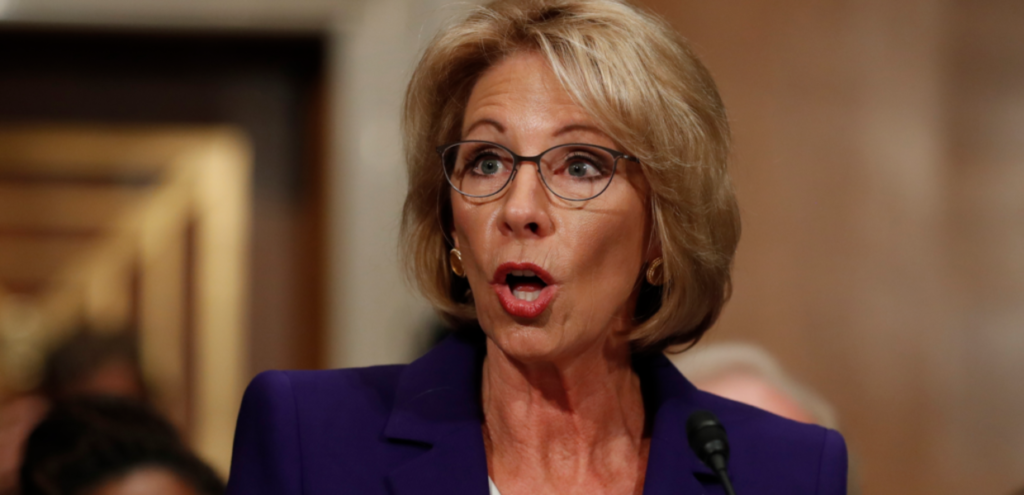

If one were to describe the nomination of Betsy DeVos to the position of Secretary of Education it could probably be summed up in one word: chaotic. Featuring an overnight protest on the floor by Senate Democrats, the defection of two Republican senators, President Trump’s choice for the position was eventually confirmed in one of the slimmest margins in history, with Vice President Mike Pence having to step in to cast the tie-breaking vote, a first for a cabinet appointee.
DeVos has been a controversial pick, to say the least. Sen. Elizabeth Warren of Massachusetts had been a particularly vocal opponent of DeVos’ nomination. During DeVos’ confirmation hearings, Warren wrote to her in a letter stating “there is no precedent for an Education Department Secretary nominee with your lack of experience in public education.” Teacher unions as well were heavily critical of DeVos and called her a danger to public schools. Dr. Brooke Burks, an associate professor at AUM in Education, cited many of the same concerns as Sen. Warren, that DeVos “doesn’t have the experience, or the background” for the position, and personally felt it was “devaluing to her profession” to have such an unqualified candidate nominated to such a high office.
Another common concern of Devos’ confirmation is the “pay to play” status of her nomination, with the DeVos family being a heavily known republican donor. Stating concern that “we are moving toward what some would call an oligarchic society, where a small number of very wealthy billionaires control, to some degree, our economic and political life,” Sen. Bernie Sanders pushed her on just how much her family had donated over the years, stating he had heard a figure of $200 million. DeVos responded with “that’s possible.” Notably, the DeVos family has sent contributions to 23 current Republican senators, ranging in size from $1,000 to almost $100,000, according to the Center for American Progress. Only one of those senators, Sen. Lisa Murkowski of Alaska, who has received $43,200 from the DeVos family, voted against her confirmation. Sen. Murkowski cited “thousands” of calls from Alaskans with concerns about her support for school privatization and the particular effect DeVos’ idea of education would have on rural schools.
DeVos is a proponent of school choice and vouchers, which essentially boils down to using public education funds to let parents choose the type of school their child goes to, whether that be public, private, charter or magnet. Burks, who also has 11 years of teaching experience in public schools, expressed concern that vouchers take money away from public schools, who are already struggling. The National Education Association, a teacher’s union and the largest labor union in the United State, gives various reasons in its case against school vouchers, such as previous instances of voucher use in places like Milwaukee, Cleveland and Florida where the NEA claims a “two-tiered system has been set up that holds students in public and private schools to different standards.” And since around 85 percent of private schools are religious, the NEA argues that these vouchers are a way of “circumventing the Constitutional prohibitions against subsidizing religious practice and instruction.”
Despite being the world’s biggest superpower, the U.S. ranked only 14th in overall education according to a 2014 report done by Pearson Education. If the U.S. hopes to ever catch up to those ahead of it in education it is imperative that it’s leaders in the field are experienced and qualified, and that is just not what DeVos offers.
By Blake Hunter
